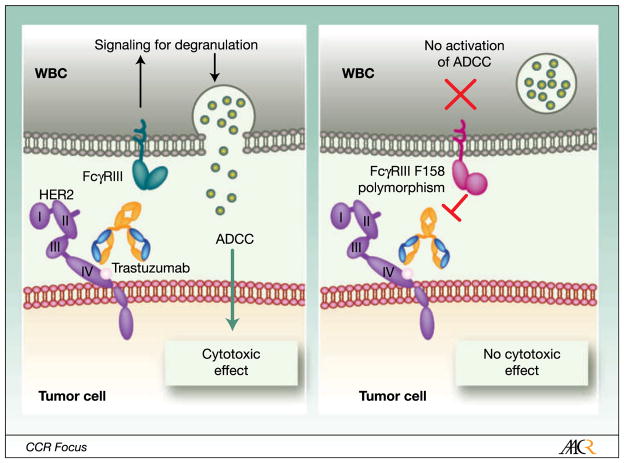Fig. 6.
General mechanisms of resistance to trastuzumab: failure to trigger immune-mediated mechanisms to destroy tumor cells. ADCC is a process in which the Fab region of an antibody binds to its cognate antigen present on a target cell (for instance cancer cell), whereas its Fc region engages with the Fc receptor present on an effector cell from immune system. This process triggers degranulation of cytotoxic granules from effector cell toward the target cell and culminates with target cell apoptosis (131). In humans, the Fc receptor family comprises FcγRI (CD64); FcγRII (CD32), with three isoforms FcγRIIa, FcγRIIb (inhibitory), and FcγRIIc; and FcγRIII (CD16), including two isoforms FcγRIIIa and FcγRIIIb (132). There is a correlation between the clinical efficacy of therapeutic antibodies in humans and their allotype of high-affinity (V158) or low-affinity (F158) polymorphic forms of FcγRIIIa. Epitope masking previously discussed in the obstacles for trastuzumab binding to HER2 section would also play a role by preventing antibody-based cell destruction.

